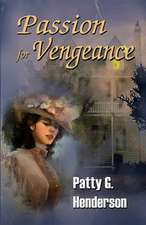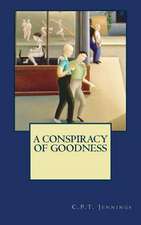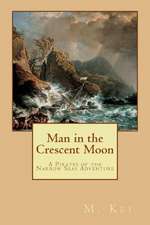Gordon
Autor Edith Templetonen Limba Engleză Paperback – 30 apr 2004
Originally published under a pseudonym in 1966, Gordon was banned in England and Germany for its frank sexual content, and even today it remains provocative in its fearless probing of the boundaries of consent and submission.
| Toate formatele și edițiile | Preț | Express |
|---|---|---|
| Paperback (2) | 87.21 lei 22-36 zile | |
| Vintage Publishing – 30 apr 2004 | 87.21 lei 22-36 zile | |
| Penguin Books – aug 2012 | 99.29 lei 43-57 zile |
Preț: 87.21 lei
Nou
Puncte Express: 131
Preț estimativ în valută:
16.69€ • 17.32$ • 13.95£
16.69€ • 17.32$ • 13.95£
Carte disponibilă
Livrare economică 24 februarie-10 martie
Preluare comenzi: 021 569.72.76
Specificații
ISBN-13: 9781400030293
ISBN-10: 1400030293
Pagini: 240
Dimensiuni: 132 x 204 x 16 mm
Greutate: 0.25 kg
Editura: Vintage Publishing
ISBN-10: 1400030293
Pagini: 240
Dimensiuni: 132 x 204 x 16 mm
Greutate: 0.25 kg
Editura: Vintage Publishing
Notă biografică
Edith Templeton was born in Prague in 1916, and spent much of her childhood in a castle in the Bohemian countryside. She was educated at a French lycée in Prague, and left that city in 1938 to marry an Englishman. During her years in Britain, she worked in the Office of the Chief Surgeon for the U.S. Army in Cheltenham, and then became a captain in the British Army, working as a high-level conference interpreter. Her short stories began to appear in The New Yorker in the fifties, and over the enxt several decades she published a number of novels, as well as a popular travel book, The Surprise of Cremona, in the United Kingdom.
Mrs. Templeton left England in 1956 to live in India with her second husband, a celebrated cardiologist and the physician to the King of Nepal. She has since lived in various parts of Europe, and now makes her home in Bordighera, on the coast of Italy.
Mrs. Templeton left England in 1956 to live in India with her second husband, a celebrated cardiologist and the physician to the King of Nepal. She has since lived in various parts of Europe, and now makes her home in Bordighera, on the coast of Italy.
Extras
Chapter One
At a quarter to six in the afternoon on a sunny day in June, I was sitting near the bar counter at Shepherds watching a man above the rim of my glass. I was certain he was going to try to pick me up. I was less certain what I was going to do about it. In looks he reminded me of Major Carter who, a few weeks ago, had embraced me while taking me home in a staff car from a regimental dance and who, upon being repulsed, had apologised: “I can’t think what came over me. And you such a nice girl, too.”
Perhaps it was his disappointment at my being “such a nice girl” which had driven him to get drunk later on that night; or perhaps he had been drunk already in the car. I had lost sight of him as soon as we had entered the vast lounge of the hotel which was our mess. But half an hour later, while sitting and talking with several of my friends, I was astonished by Major Carter’s appearance on the gallery which circled the lounge. He was naked except for underpants. Clutching the edge of the balustrade, he shouted: “I want a woman. I must have a woman!”
The two mess sergeants doing duty at the reception desk in the foyer, the mess secretary and a few other officers, among whom I saw young Dent, came running up the steps leading to the gallery and gathered round him. He was carried, struggling and shouting, to the lift.
What happened then was told me by Dent, who half an hour later joined the table where I was sitting. Dent was delighted: “We get the fellow upstairs to his room and we put him on the bed and tie his hands and feet with two lanyards. Then we keep hanging about, talking, not really looking at him, thinking we’ll give him another ten minutes and then his batman can settle him for the night and we’ll call it a day, when he bursts his ties, ups and streaks out of the room and down the landing. We chase after him, he dashes to the door of the lift, opens it, and gets into the lift which isn’t there. And we just close our eyes. A drop of four floors and down below a slab of concrete! We run down the stairs to pick up what’s left of him, and when we get to the first floor, we catch sight of him running up the stairs to meet us, cursing and yelling, and we clash; and there we are all together again, fighting and struggling, just as before. He’s in bed now.”
On the following morning Major Carter, while eating his breakfast, was heard to remark that he was damned if he knew why he was covered all over with bruises.
I knew Shepherds well, from before the war, but I had never gone there on my own. Nor had I ever gone to any pub alone before.
It was 1946, the war was over, and I had returned to London two days before. I was twenty-eight years old, and though unsettled and lonely, I had not reached the phase in life of which it is said: “He who has no house now will not build one any more. He who is alone now will stay alone for long. He will awake, will read, will write lengthy letters, and will pace the avenues amidst the drifting leaves.”
Shepherds had not changed, and I loved the very name of it—Shepherds in Shepherds Market, for the irony it carried, for being so exactly the opposite of what shepherds and a market implied. There was still the same ceiling, brown and glossy as though poured over with caramel, and looking so brittle as to make one convinced it would crack at the merest touch. The telephone at the right of the entrance was still enclosed in the antique sedan chair whose panels were painted with garlands of flowers, and there was still the one bartender who pretended that the half-crown he had received had been a florin.
The place was thronged, but I was out of the crush. I was seated on the low, wide windowsill near the second entrance, at the far end opposite the sedan chair, with plenty of space on either side of me to place my handbag and to put down my glass. I had on a short-sleeved slim-fitting dress of silk printed with wavering blobs of blue, pink, and mauve, recalling those marbled end-papers adorning the books of the nineteenth century. It was this dress I had worn one afternoon in the garden of our mess at Headquarters when Colonel Prior had exclaimed: “Don’t move now, Louisa, whatever you do. You are looking just like a Renoir.” It was this dress I had worn one evening when we were assembled in the ante-room and Major Turner had come in and said, “I’ve told the orderlies to wait dinner for another ten minutes. Louisa is looking so sweet just now that I didn’t have the heart to break it up.”
I was casting another glance at the man resembling Major Carter and observed that he had moved his stool yet another few inches nearer to where I was sitting. He was a blond, plump, red-faced young man; he would be, as we used to say, not overloaded with brains, and yet, at the same time, nobody’s fool. Then I let my eyes stray farther down the room, gripped with disappointment at seeing only strangers. Shepherds was a meeting-place for anyone on leave from our crowd; and it was in the hope of finding, if not a friend, at least an acquaintance, that I had come here.
For a second I met the eyes of a man standing in front of the sedan chair, of which just one corner was visible and on it half of a painted rose, cracked and faded. Only his head and part of his shoulders were rising from behind a group of officers, sufficient for me to see that he was a civilian. Very smooth, I thought, something nasty there, too. Probably a Mayfair pansy. And I turned my eyes away and took a sip of my sherry.
While I watched from beneath lowered lids the progress towards me of the second Major Carter, I fell to wondering, as I had so often done before, about the deplorable logic of “and you such a nice girl, too.” Surely, if a man despised a woman who had what is flatteringly called “granted him her favours,” it must mean that he despised himself as well. The rare contrast to this was young Captain Dent with his “then, when I asked her to come to bed with me, she, being an intelligent woman, said yes.”
The second Major Carter had just risen and taken a step towards me with a wondering, round-eyed stare and an open-mouthed smile, which made me certain that he would accost me with something like “What fun seeing you here. Now let me think—where did we meet before?” when I heard a very low voice saying, “We’ll have another drink somewhere else.” The voice was so faint and came so entirely out of nowhere that I thought for a moment I had been imagining it.
I turned my head.
The stranger whom I had dismissed as a Mayfair pansy was standing behind me. I was too taken aback to be able to speak. He detached my fingers from the glass I was holding and put it down on the sill. His hand closed round my wrist. I could feel the pressure of his hard thumb against my pulse. “Come along now,” he said in the same low voice. I picked up my handbag with my free hand, and while the second Major Carter was still staring at me, round-eyed and open-mouthed but with the smile gone from his face, I followed the stranger through the door.
On the pavement he halted and released me. I turned towards him. We looked at each other. I was still dazed and bewildered over my inexplicable obedience. He was smiling. Oh God, what have I let myself in for?, I thought as I looked into his eyes and found them decidedly unpleasant. They were deep-set, dark grey, and ringed with white, a peculiarity of the iris I had sometimes observed in very old people. But their almost sinister look derived probably from their placement. They were set at uneven levels, the left eye slightly higher than the right one. It must have been this which had given me my first impression of nastiness.
He was neither short nor tall, slender and narrow-boned, of an unimpressive physique I did not care for; and neither did I care for his face, though it held the same kind of fascination which informs the irregular and jutting outlines of a romantic ruin. The nose was high-bridged and uneven, the cheeks hollow beneath strong cheek-bones, the lips long, the chin beautifully and firmly rounded. The slightly waved jet-black hair grew low on to the wide forehead, underscoring the sombre pallor of the face like a cluster of dark ivy streaking down a flight of crumbling crenellations.
I glanced away from him, to the other side of the street where the watery sunshine of the late afternoon lay on the pavement. Then I looked at him again. He was not smiling any more. He was contemplating me intently.
“We’ll go to my club in Brook Street,” he said; “it’s quieter there. Come along.”
We crossed to the other side and walked a few steps, when I stopped in front of an antique dealer’s shop-window. My companion stopped, too. I felt safe and reassured by the familiar sight of the bric-a-brac, the fans, the clocks, the beads, the snuff-boxes, strewn on to a sheet of blue watered silk which cascaded down from the top of a Sheraton chest and was arranged in small ripples in the foreground.
“Do you care for that sort of things?” he asked.
“Yes,” I said, “but they must be beautiful. I don’t like things only because they are old. They must be beautiful as well.”
He said as though talking to himself: “I see. Old and beautiful. Yes, I see.”
I felt myself growing hot and was annoyed with myself for blushing, and wondered why he made me feel so embarrassed. I remained standing as I was, but ceased to pay attention to the antique litter and raised my eyes to the glass itself, on which our two figures were mirrored.
In his dark suit and white shirt he looked discreetly smooth and well groomed, in that confidence-inspiring and non-dandified style which Savile Row sheds on its devotees.
He was, I thought, in the professions, and a gentleman according to my own definition, by which I mean a man who has had Greek at school. And yet, despite the soundness of his attire, there was this face of his which clamoured to be portrayed by one of the masters of the Spanish or Neapolitan tenebroso painters, or to be modelled by the limelights of the stage. There was something of an actor about him, though not in the slighting sense of the term; I mean a first-rate man who would under-act and get his effect by throwing away his lines.
I said to myself, he’s a barrister. Most barristers have a histrionic streak.
“I would not mind standing here for hours,” he said, “if you were looking at the stuff. But you have been thinking about something completely different during the last minute or so. Trying to fit me in.”
“Yes,” I said.
At a quarter to six in the afternoon on a sunny day in June, I was sitting near the bar counter at Shepherds watching a man above the rim of my glass. I was certain he was going to try to pick me up. I was less certain what I was going to do about it. In looks he reminded me of Major Carter who, a few weeks ago, had embraced me while taking me home in a staff car from a regimental dance and who, upon being repulsed, had apologised: “I can’t think what came over me. And you such a nice girl, too.”
Perhaps it was his disappointment at my being “such a nice girl” which had driven him to get drunk later on that night; or perhaps he had been drunk already in the car. I had lost sight of him as soon as we had entered the vast lounge of the hotel which was our mess. But half an hour later, while sitting and talking with several of my friends, I was astonished by Major Carter’s appearance on the gallery which circled the lounge. He was naked except for underpants. Clutching the edge of the balustrade, he shouted: “I want a woman. I must have a woman!”
The two mess sergeants doing duty at the reception desk in the foyer, the mess secretary and a few other officers, among whom I saw young Dent, came running up the steps leading to the gallery and gathered round him. He was carried, struggling and shouting, to the lift.
What happened then was told me by Dent, who half an hour later joined the table where I was sitting. Dent was delighted: “We get the fellow upstairs to his room and we put him on the bed and tie his hands and feet with two lanyards. Then we keep hanging about, talking, not really looking at him, thinking we’ll give him another ten minutes and then his batman can settle him for the night and we’ll call it a day, when he bursts his ties, ups and streaks out of the room and down the landing. We chase after him, he dashes to the door of the lift, opens it, and gets into the lift which isn’t there. And we just close our eyes. A drop of four floors and down below a slab of concrete! We run down the stairs to pick up what’s left of him, and when we get to the first floor, we catch sight of him running up the stairs to meet us, cursing and yelling, and we clash; and there we are all together again, fighting and struggling, just as before. He’s in bed now.”
On the following morning Major Carter, while eating his breakfast, was heard to remark that he was damned if he knew why he was covered all over with bruises.
I knew Shepherds well, from before the war, but I had never gone there on my own. Nor had I ever gone to any pub alone before.
It was 1946, the war was over, and I had returned to London two days before. I was twenty-eight years old, and though unsettled and lonely, I had not reached the phase in life of which it is said: “He who has no house now will not build one any more. He who is alone now will stay alone for long. He will awake, will read, will write lengthy letters, and will pace the avenues amidst the drifting leaves.”
Shepherds had not changed, and I loved the very name of it—Shepherds in Shepherds Market, for the irony it carried, for being so exactly the opposite of what shepherds and a market implied. There was still the same ceiling, brown and glossy as though poured over with caramel, and looking so brittle as to make one convinced it would crack at the merest touch. The telephone at the right of the entrance was still enclosed in the antique sedan chair whose panels were painted with garlands of flowers, and there was still the one bartender who pretended that the half-crown he had received had been a florin.
The place was thronged, but I was out of the crush. I was seated on the low, wide windowsill near the second entrance, at the far end opposite the sedan chair, with plenty of space on either side of me to place my handbag and to put down my glass. I had on a short-sleeved slim-fitting dress of silk printed with wavering blobs of blue, pink, and mauve, recalling those marbled end-papers adorning the books of the nineteenth century. It was this dress I had worn one afternoon in the garden of our mess at Headquarters when Colonel Prior had exclaimed: “Don’t move now, Louisa, whatever you do. You are looking just like a Renoir.” It was this dress I had worn one evening when we were assembled in the ante-room and Major Turner had come in and said, “I’ve told the orderlies to wait dinner for another ten minutes. Louisa is looking so sweet just now that I didn’t have the heart to break it up.”
I was casting another glance at the man resembling Major Carter and observed that he had moved his stool yet another few inches nearer to where I was sitting. He was a blond, plump, red-faced young man; he would be, as we used to say, not overloaded with brains, and yet, at the same time, nobody’s fool. Then I let my eyes stray farther down the room, gripped with disappointment at seeing only strangers. Shepherds was a meeting-place for anyone on leave from our crowd; and it was in the hope of finding, if not a friend, at least an acquaintance, that I had come here.
For a second I met the eyes of a man standing in front of the sedan chair, of which just one corner was visible and on it half of a painted rose, cracked and faded. Only his head and part of his shoulders were rising from behind a group of officers, sufficient for me to see that he was a civilian. Very smooth, I thought, something nasty there, too. Probably a Mayfair pansy. And I turned my eyes away and took a sip of my sherry.
While I watched from beneath lowered lids the progress towards me of the second Major Carter, I fell to wondering, as I had so often done before, about the deplorable logic of “and you such a nice girl, too.” Surely, if a man despised a woman who had what is flatteringly called “granted him her favours,” it must mean that he despised himself as well. The rare contrast to this was young Captain Dent with his “then, when I asked her to come to bed with me, she, being an intelligent woman, said yes.”
The second Major Carter had just risen and taken a step towards me with a wondering, round-eyed stare and an open-mouthed smile, which made me certain that he would accost me with something like “What fun seeing you here. Now let me think—where did we meet before?” when I heard a very low voice saying, “We’ll have another drink somewhere else.” The voice was so faint and came so entirely out of nowhere that I thought for a moment I had been imagining it.
I turned my head.
The stranger whom I had dismissed as a Mayfair pansy was standing behind me. I was too taken aback to be able to speak. He detached my fingers from the glass I was holding and put it down on the sill. His hand closed round my wrist. I could feel the pressure of his hard thumb against my pulse. “Come along now,” he said in the same low voice. I picked up my handbag with my free hand, and while the second Major Carter was still staring at me, round-eyed and open-mouthed but with the smile gone from his face, I followed the stranger through the door.
On the pavement he halted and released me. I turned towards him. We looked at each other. I was still dazed and bewildered over my inexplicable obedience. He was smiling. Oh God, what have I let myself in for?, I thought as I looked into his eyes and found them decidedly unpleasant. They were deep-set, dark grey, and ringed with white, a peculiarity of the iris I had sometimes observed in very old people. But their almost sinister look derived probably from their placement. They were set at uneven levels, the left eye slightly higher than the right one. It must have been this which had given me my first impression of nastiness.
He was neither short nor tall, slender and narrow-boned, of an unimpressive physique I did not care for; and neither did I care for his face, though it held the same kind of fascination which informs the irregular and jutting outlines of a romantic ruin. The nose was high-bridged and uneven, the cheeks hollow beneath strong cheek-bones, the lips long, the chin beautifully and firmly rounded. The slightly waved jet-black hair grew low on to the wide forehead, underscoring the sombre pallor of the face like a cluster of dark ivy streaking down a flight of crumbling crenellations.
I glanced away from him, to the other side of the street where the watery sunshine of the late afternoon lay on the pavement. Then I looked at him again. He was not smiling any more. He was contemplating me intently.
“We’ll go to my club in Brook Street,” he said; “it’s quieter there. Come along.”
We crossed to the other side and walked a few steps, when I stopped in front of an antique dealer’s shop-window. My companion stopped, too. I felt safe and reassured by the familiar sight of the bric-a-brac, the fans, the clocks, the beads, the snuff-boxes, strewn on to a sheet of blue watered silk which cascaded down from the top of a Sheraton chest and was arranged in small ripples in the foreground.
“Do you care for that sort of things?” he asked.
“Yes,” I said, “but they must be beautiful. I don’t like things only because they are old. They must be beautiful as well.”
He said as though talking to himself: “I see. Old and beautiful. Yes, I see.”
I felt myself growing hot and was annoyed with myself for blushing, and wondered why he made me feel so embarrassed. I remained standing as I was, but ceased to pay attention to the antique litter and raised my eyes to the glass itself, on which our two figures were mirrored.
In his dark suit and white shirt he looked discreetly smooth and well groomed, in that confidence-inspiring and non-dandified style which Savile Row sheds on its devotees.
He was, I thought, in the professions, and a gentleman according to my own definition, by which I mean a man who has had Greek at school. And yet, despite the soundness of his attire, there was this face of his which clamoured to be portrayed by one of the masters of the Spanish or Neapolitan tenebroso painters, or to be modelled by the limelights of the stage. There was something of an actor about him, though not in the slighting sense of the term; I mean a first-rate man who would under-act and get his effect by throwing away his lines.
I said to myself, he’s a barrister. Most barristers have a histrionic streak.
“I would not mind standing here for hours,” he said, “if you were looking at the stuff. But you have been thinking about something completely different during the last minute or so. Trying to fit me in.”
“Yes,” I said.
Recenzii
“Riveting, intelligent, delicately written. . . . Templeton is an extraordinarily gifted and acerbic observer of the weirder reaches of love.” –The Seattle Times
“Imagine Jane Austen and D.H. Lawrence sharing an engrossed conversation about social snobbery and the wolfish pursuit of obsessive sex and you have something of Templeton’s atmosphere.” –Los Angeles Times Book Review
“[An] eerie tale of sexual obsession. . . . One part Story of O to two parts Muriel Spark, the book beautifully evokes the tightened belts and loosened morals of postwar London.” —The New Yorker
“Gordon is one of the great classics of erotic literature.” –W Magazine
“Imagine Jane Austen and D.H. Lawrence sharing an engrossed conversation about social snobbery and the wolfish pursuit of obsessive sex and you have something of Templeton’s atmosphere.” –Los Angeles Times Book Review
“[An] eerie tale of sexual obsession. . . . One part Story of O to two parts Muriel Spark, the book beautifully evokes the tightened belts and loosened morals of postwar London.” —The New Yorker
“Gordon is one of the great classics of erotic literature.” –W Magazine




























